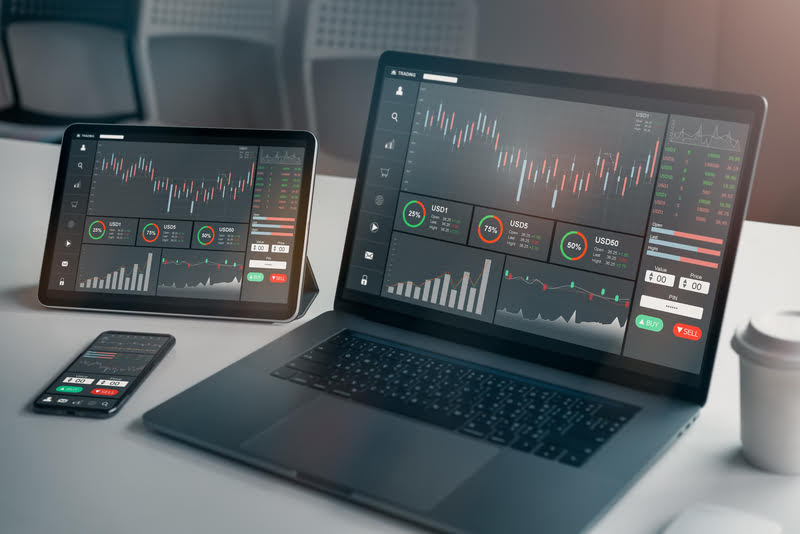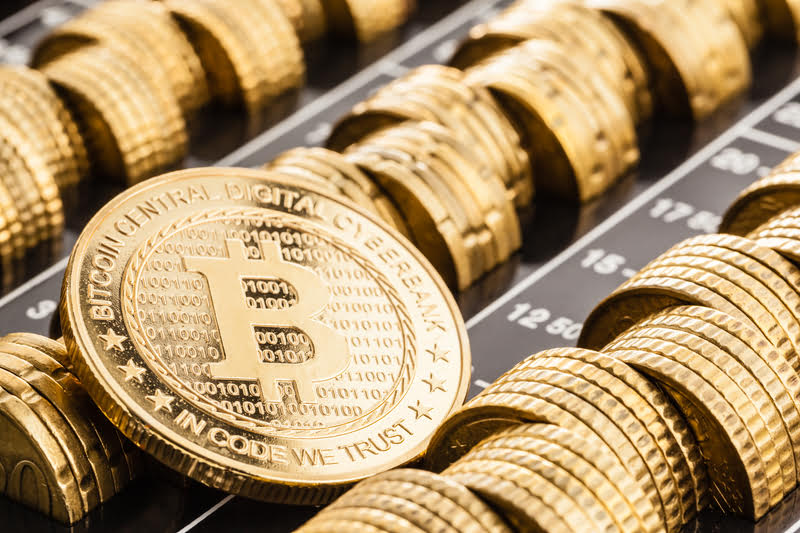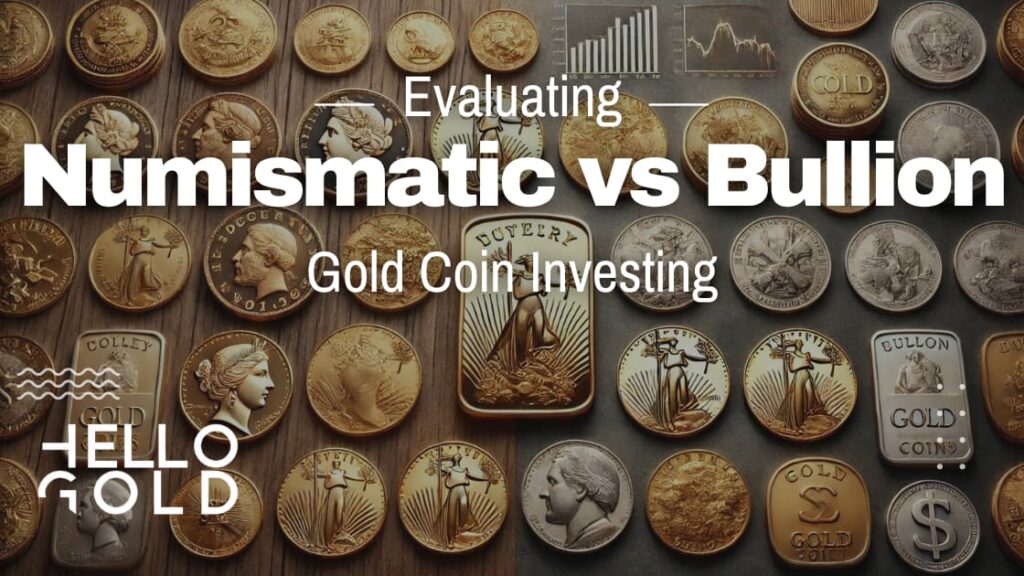Are you intrigued by the world of alternative investments, but unsure whether to put your hard-earned money into the time-tested allure of gold or the cutting-edge excitement of Bitcoin?
The debate between these two investment options has captured the attention of both traditional and modern investors alike, sparking countless discussions about their potential risks and rewards.
In this comprehensive article, we dive deep into the history, fundamental differences, and market performance of gold and Bitcoin, providing you with the vital knowledge you need to make informed decisions for your diversified portfolio.
So, buckle up and get ready to embark on a fascinating journey through the worlds of precious metals and digital currencies, as we uncover the secrets behind the ultimate investment showdown: Gold vs Bitcoin!
The History and Origins of Gold and Bitcoin
Tracing back the origins of gold and Bitcoin provides valuable insights into their fundamental differences and potential as investments.
Understanding their unique characteristics, market performances, and the factors influencing their values can help investors make informed decisions when allocating funds to these assets.
In this article, we will analyze gold and Bitcoin, assess their investment potential, and provide guidance on incorporating them into a diversified portfolio.
Gold’s historical significance and uses
For centuries, gold has been a symbol of wealth and a store of value. Its rarity, durability, and aesthetic appeal have made it a crucial component of various monetary systems and a sought-after commodity.
Throughout history, gold has been used for currency, luxury items, and specialized applications in dentistry, electronics, and other industries.
The constant demand for gold, coupled with its limited supply, has contributed to its steady value appreciation over time.
Bitcoin’s emergence and early adoption
Since Satoshi Nakamoto introduced Bitcoin in 2009, it has evolved from a niche experiment to a globally recognized digital asset.
Bitcoin’s early adopters saw its potential as a decentralized currency and invested in the novel technology.
Despite its initial obscurity, Bitcoin gained mainstream attention during the 2017-2018 bubble and has since become a popular investment vehicle, offering staggering profits to those who invested early.

The Fundamental Differences Between Gold and Bitcoin
Although both gold and Bitcoin are considered alternative investments to traditional assets like stocks and bonds, they possess distinct properties and characteristics that set them apart.
Physical properties: Gold as a tangible asset vs Bitcoin as a digital asset
While gold can be held in physical form, such as coins, bars, or jewelry, Bitcoin exists purely in the digital realm.
This fundamental difference affects the way these assets are stored, transferred, and valued.
Physical gold can be stored in vaults, safety deposit boxes, or even at home, whereas Bitcoin must be stored in digital wallets, which can be either online or offline (‘cold storage’).
The tangibility of gold contributes to its perceived stability and value, while Bitcoin’s intangible nature may lead some investors to question its long-term viability and susceptibility to cyber threats.
Utility and applications
Gold’s versatility in numerous industries contrasts with Bitcoin’s primary function as a digital currency and store of value.
Gold is used in electronics, dentistry, aerospace, and jewelry, among other applications, which helps maintain its demand and value over time.
In contrast, Bitcoin’s utility is currently limited, although its adoption and acceptance as a payment method are growing.
Supply and scarcity
Gold’s finite supply on Earth differs from Bitcoin’s predetermined supply cap of 21 million coins.
While both assets are scarce, gold’s supply is subject to discoveries of new deposits and advances in mining technology, whereas Bitcoin’s supply is algorithmically controlled and decreases over time through a process called ‘halving.’
The scarcity of both assets contributes to their value, with investors often viewing them as hedges against inflation and currency devaluation.
Security and regulation
Differing levels of protection exist for gold and Bitcoin investments, with gold’s stringent regulations versus Bitcoin’s evolving regulatory landscape.
Gold is highly regulated, with established infrastructure for trading, storing, and insuring the precious metal.
On the other hand, Bitcoin’s regulatory environment is still developing, and its decentralized nature can make it more susceptible to fraud, hacking, and theft.
Despite these differences, both gold and Bitcoin have the potential to provide investors with valuable diversification and potential returns, depending on individual risk tolerance and investment goals.
Investment Strategies: Gold and Bitcoin as Portfolio Assets
Diversifying with gold and Bitcoin can provide investors with unique opportunities to optimize returns, hedge against risks, and achieve long-term financial goals.
However, it is essential to understand the investment strategies, vehicles, and allocation percentages for each asset to maximize their benefits within a diversified portfolio.
Risk tolerance and investment goals
Before allocating funds to gold or Bitcoin, investors should assess their risk tolerance and investment goals.
Gold is generally considered a safer, more stable asset, making it suitable for conservative investors seeking long-term wealth preservation.
Conversely, Bitcoin’s volatility and potential for high returns may appeal to more aggressive investors willing to take on higher risk for potentially greater rewards.
It is crucial to consider factors such as investment horizon, financial objectives, and overall portfolio composition when deciding on the allocation of gold and Bitcoin investments.
Portfolio diversification benefits
Incorporating gold and Bitcoin into a diversified portfolio can offer several benefits, including reduced overall risk and enhanced returns.
Gold has historically demonstrated a low correlation with traditional assets such as stocks and bonds, making it an effective portfolio diversifier.
Similarly, Bitcoin, although more correlated with stock markets in recent years, can add an element of diversification due to its unique properties as a digital asset and potential for outsized returns.
Investment vehicles: Physical gold, ETFs, and Bitcoin exchanges
Various methods of investing in gold and Bitcoin exist, each with its pros and cons.
For gold, investors can:
- Purchase physical gold in the form of coins, bars, or jewelry
- Invest in gold exchange-traded funds (ETFs)
- Buy shares in gold mining companies.
Bitcoin investments can be made through reputable cryptocurrency exchanges or by purchasing shares in Bitcoin-related companies or funds.
Investors should carefully research and select the most suitable investment vehicle based on their preferences, risk tolerance, and financial goals.
Allocating a percentage of your portfolio
Experts suggest limiting exposure to alternative assets such as gold and Bitcoin to avoid excessive risk concentration.
A commonly recommended allocation is no more than 5-10% of one’s portfolio in these assets.
The exact allocation depends on the individual investor’s risk tolerance, investment horizon, and financial objectives.
It is essential to reevaluate and adjust asset allocations periodically to maintain optimal diversification and alignment with investment goals.

Market Performance: Analyzing Gold and Bitcoin’s Returns
Over the years, gold and Bitcoin have exhibited different market performances, reflecting their unique characteristics and the factors influencing their values.
Analyzing their historical returns, recent performance, and market cycles can provide valuable insights for investors considering incorporating these assets into their portfolios.
Historical returns: Gold’s stability versus Bitcoin’s volatility
Comparing long-term performance, gold has been a relatively stable investment, delivering consistent and modest returns over the years.
Its value has gradually increased, reflecting its status as a store of value and a hedge against inflation.
In contrast, Bitcoin has experienced extreme price fluctuations since its inception, with periods of rapid appreciation followed by significant declines.
Early adopters of Bitcoin have witnessed immense returns on their investments, but the asset’s volatility also exposes investors to substantial risks.
Recent performance: Comparing returns in the last decade
Examining recent market trends, Bitcoin has outperformed gold in terms of returns during specific periods, particularly during the 2017-2018 bull run and subsequent recoveries.
However, Bitcoin’s price has also experienced sharp declines, such as the nearly 57% fall since its all-time high in late 2021.
Gold, on the other hand, has produced positive returns over the last decade, albeit at a slower and more stable pace than Bitcoin.
The precious metal’s performance highlights its appeal as a low-risk traditional asset, especially for conservative investors.
Market cycles and investment timing
Understanding the cyclical nature of both gold and Bitcoin markets can help investors make informed decisions about when to enter or exit these investments.
Gold’s market cycles tend to follow macroeconomic trends, with its price generally increasing during periods of economic uncertainty and declining when economies are thriving.
Bitcoin’s market cycles, characterized by the 4-year halving events and bull/bear market phases, can provide opportunities for strategic investments.
However, timing the market can be challenging, and investors should be prepared for potential losses if the market turns against their expectations.
External factors influencing market performance
Economic events and technological advancements can impact the value of gold and Bitcoin.
For gold, factors such as interest rate changes, geopolitical tensions, and currency fluctuations can influence its price.
In the case of Bitcoin, factors like regulatory developments, technological advancements in blockchain and cryptocurrencies, and broader market sentiment can affect its value.
For instance, the Lightning Network’s progress has improved Bitcoin’s utility as a payment method, while regulatory changes can either boost or hinder its adoption.
Tax and Regulatory Implications of Gold and Bitcoin Investments
Understanding the tax and regulatory implications of gold and Bitcoin investments is crucial for investors to make informed decisions and ensure compliance with relevant laws and regulations.
This section will provide an overview of the tax implications of both assets, reporting requirements, and strategies for minimizing tax liability.
Taxation on profits from gold and Bitcoin investments
Profits from exchanging gold and Bitcoin are subject to capital gains tax, depending on the investor’s personal circumstances and the duration of the investment.
The tax rate will vary based on factors such as income, tax filing status, and whether the asset was held for more than a year (long-term) or less (short-term).
It is essential to consult with a tax professional to determine the appropriate tax rate for your specific situation.
Reporting cryptocurrency transactions for tax purposes
Keeping track of transactions and accurately reporting them on your tax returns is crucial for compliance with tax regulations.
Cryptocurrency transactions, including the sale of Bitcoin for fiat currency, the purchase of goods and services using Bitcoin, and the trading of different types of cryptocurrencies, are all taxable events that must be reported.
To accurately report your cryptocurrency gains and losses, maintain a record of your transactions in U.S. dollars, and calculate the cost basis and sale price or proceeds for each trade.
Consult with a tax professional for guidance on reporting requirements and the necessary documentation.
Tax implications of Bitcoin mining
Depending on the classification of mining activities as a business or a hobby, different tax implications may apply.
If mining is considered a business activity, the income generated from mining will be subject to regular income tax rates. On the other hand, if classified as a hobby, the income may be subject to a lower tax rate.
Registering your mining operation as a business may enable you to deduct more expenses, so it is essential to consult with a tax professional to determine the appropriate classification and potential deductions.
Minimizing tax liability on cryptocurrency investments
Strategies to reduce crypto taxes include holding successful investments for more than one year before selling or using them, as long-term capital gains tax rates are typically lower than short-term rates.
Additionally, you can deduct cryptocurrency losses from your taxes if you dispose of your investment and recognize a loss.
Consult with a tax professional for personalized advice on minimizing your tax liability.
State-specific tax breaks and incentives for crypto operations
Some states, such as Wyoming, offer tax breaks, enhanced legislation, and regulatory sandboxes to encourage mining operations and cryptocurrency businesses to establish themselves within their borders.
For example, Wyoming passed a bill in 2018 exempting digital currencies from money transmitter laws and regulations, and another in 2019 exempting them from property taxes.
Research and consider the potential benefits of operating in states with favorable tax and regulatory environments for your specific situation.

The Future of Gold and Bitcoin: Expert Predictions and Potential Developments
Looking forward, one can expect the landscape of gold and Bitcoin investments to evolve as technological advancements, market trends, and regulatory changes come into play.
By staying informed and keeping an eye on these factors, investors can better position themselves for future success.
Technological advancements and their impact on gold and Bitcoin
Emerging technologies, such as asteroid mining for gold and blockchain developments, could significantly impact the supply and demand dynamics of both assets.
Asteroid mining has the potential to uncover vast quantities of gold, potentially altering its scarcity and value.
On the other hand, continued advancements in blockchain technology could further enhance Bitcoin’s utility, security, and adoption, positively influencing its value.
Market trends and expert predictions
Analysts and industry leaders offer varying predictions for the future performance of gold and Bitcoin.
Some experts foresee gold maintaining its steady growth, supported by its historical significance and diverse applications.
In contrast, others predict that Bitcoin could experience significant price increases as it gains broader acceptance and adoption.
It is essential to recognize that price predictions can often be inaccurate, and investors should remain cautious when basing decisions solely on expert forecasts.
Regulatory changes and their potential impact
As governments and financial institutions adapt to the increasing prominence of cryptocurrencies, regulatory changes are bound to occur.
Such changes can have significant implications for the value and adoption of Bitcoin and other digital assets.
Investors should closely monitor regulatory developments, as they can create both challenges and opportunities for cryptocurrency investments.
Environmental considerations and the rise of alternative cryptocurrencies
The growing concerns about Bitcoin’s energy consumption may lead to increased scrutiny and potential regulatory actions in the future.
As a result, more environmentally friendly cryptocurrencies like Ethereum, which is transitioning to a proof-of-stake consensus mechanism, could gain traction and challenge Bitcoin’s dominance in the market.
Adoption and integration of cryptocurrencies in the financial industry
The increasing acceptance of digital assets by financial institutions, businesses, and consumers is likely to play a significant role in shaping the future of gold and Bitcoin investments.
As cryptocurrencies become more integrated into the global financial system, their value and relevance as investment assets could rise.
In conclusion, the debate between gold and Bitcoin as the superior investment option remains ongoing, with both assets offering unique benefits and risks.
By understanding the fundamental differences between gold and Bitcoin, as well as analyzing their historical and projected performances, investors can make informed decisions about incorporating these assets into a diversified portfolio.
As the future unfolds, investors should remain adaptable, open to new information, and willing to reevaluate their investment strategies as needed.
By embracing change, uncertainty, and staying informed, investors can navigate the complex world of finance and achieve long-term success.
Wrapping Up
To wrap things up, one must acknowledge that gold and Bitcoin each possess their own unique set of attributes, making them both appealing investment options.
Gold, a time-tested and historically stable asset, offers a sense of security for those seeking long-term wealth preservation.
On the flip side, Bitcoin, with its alluring potential for higher returns, caters to risk-takers craving a more exhilarating investment experience.
Before diving headfirst into these assets, investors must thoroughly assess their risk tolerance and financial objectives.
Additionally, understanding market cycles, external factors shaping performance, and tax implications can provide invaluable insights, guiding them towards better-informed decisions.
Lastly, it’s crucial to keep one’s finger on the pulse of technological advancements, market trends, and regulatory changes.
By doing so, investors can adroitly adapt their strategies, ensuring they reap the maximum rewards from their investments.
Remember, whether it’s gold or Bitcoin, knowledge is power – and the well-informed investor will always have an edge.











